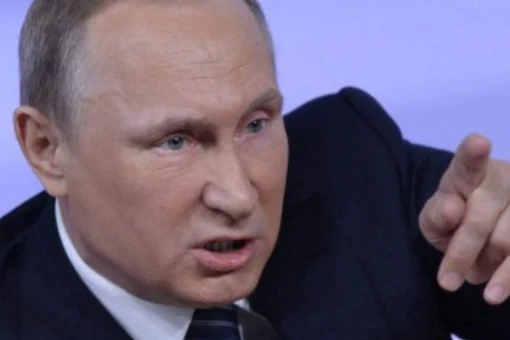Thousands of Ukrainians are said to be leaving the Donbas region of eastern Ukraine as Russia intensifies its onslaught. Since the Euromaidan protest movement in 2014, parts of the area have been controlled by Russian separatist organisations. Russia is reported to have substantially affected those in the region through a propaganda and misinformation operation.
It was the first region where Russian President Vladimir Putin dispatched soldiers to “maintain the peace,” as he put it.
While Russia has committed to reduce military activities in the country’s north near Kyiv, it is expected that forces would be redeployed to southern and eastern Ukraine to bolster Russia’s already strong hold there.
Ukraine has mainly prevented Russia from making significant gains, but the constant shelling and bombing of towns, particularly Mariupol and Kharkiv, has prompted President Volodymyr Zelensky to acknowledge that Ukraine will never join NATO.
Putin argues that one of the key motivations for his invasion was to halt NATO’s eastward expansion to Russia’s border, which he looks to have accomplished for the time being.
However, this reality has made several of Russia’s neighbours, particularly those in the EU and NATO, worried that they may be next.
Georgia has become a focal point for specialists since, unlike the Baltic nations, who are all EU and NATO members, it has yet to be welcomed into either organisation, despite being promised NATO membership along with Ukraine in 2008.
And, like Ukraine, the goal of joining NATO is now written into the country’s constitution.
Natia Seskuria, an associate fellow at the Royal United Services Institute (RUSI) and a Georgian national, now claims that the
She stated to Express.co.uk: “In some ways, this worries Georgians because I don’t believe Putin will stop at Ukraine.
“In one way or another — and I’m not recommending another conflict in Georgia — if Ukraine modifies its constitution in order to get NATO membership, I believe Georgia will be the next country pushed in the same path.
“That is clearly something that every single Georgian is concerned about today.”
The Russo-Georgian conflict began on August 1, 2008, after years of escalating tensions between Russia and the rebel-led, pro-Russian provinces of South Ossetia and Abkhazia, both of which had declared themselves republics.
Since Georgia’s independence from the Soviet Union in 1991, both South Ossetia and Abkhazia have been declared war zones.
At the commencement of the 2008 conflict, Russian-backed South Ossetian forces began shelling Georgian settlements, prompting intermittent responses from Georgian soldiers stationed in the region.
The battle became more intense, and Georgia dispatched military soldiers to halt the onslaught.
On August 7, some Russian forces are believed to have crossed the border into the South Ossetian combat zone, and shortly after, Russia started a full-scale land, air, and sea assault of Georgia, even in its indisputable territory.
Russia termed its military operations as “peace enforcement.”
It was successful in forcing the Georgian military to retreat and blockaded much of the country’s Black Sea coastline, targeting both inside and beyond the fighting zone.
The violence did not halt until then-French President Nicolas Sarkozy secured a truce on August 12.
In April 2008, just months before the conflict, NATO decided that Georgia would become a member, implying that the allied organisation would flank Russia’s border with the Caucasus.




















